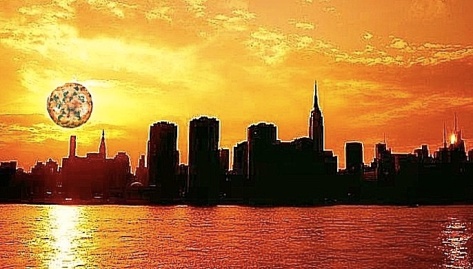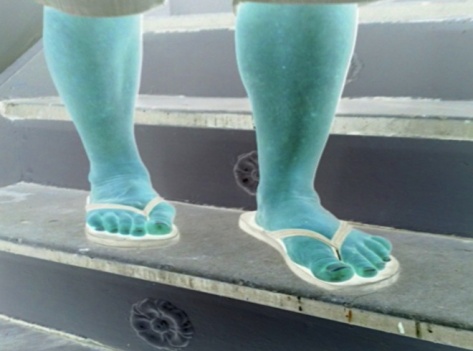But Why Didn’t They
Call it The Big Pizza?
The world would laugh if it’d even care about the little idiosyncrasies New Yorkers take at heart and seem to invest their entire being championing it. As if the fate of humankind lays squarely on the top of their shoulders. Case in point: pizza, local fast food extraordinaire.
Now, would it kill us to exercise restrain and abstain from such prosaic subject? But how could we if only yesterday, when we were hungry and broke, nothing else on the face of Earth would be more satisfying? Fear not, for we approach the beast with utmost respect.
First off, there are no two ways of eating it. No solemnity lost either. Denizens of this great cesspool are proud of mastering the holy dough early on. And then there’re all the wrong ways to be ashamed doing it. Just ask the Mayor; once caught eating it with fork and knife, it was all downhill from then on.
Anathema, no less. Come on, the whole combo of flour, cheese, and tomato sauce may have been invented in the old country ages ago, but the slice and the ‘fold and eat with your hands’ maneuver have been both trade-marked on the streets of the five boroughs, just like steaming manholes and yellow cabs.
 What? You have a problem with that? Many an argument has flared up or settled down over a steaming pie. For the growing crowd with only a pocketful of change, nothing beats a 4 AM slice by the curbside.
What? You have a problem with that? Many an argument has flared up or settled down over a steaming pie. For the growing crowd with only a pocketful of change, nothing beats a 4 AM slice by the curbside.
But alas, not even pizza can be that ‘New Yorker.’ As with other city-by-the-river staples, it’s been appropriated by the world many times over, grit, warts et al. No chance of pizza going the way of the sleazy Times Square just yet, though. But we digress.
We’re living in odd times, that’s for sure, even if equally lean. Most other local treats, like the Egg Cream and the Knish can’t compete any longer with a pie printed in space, or a slice lasting longer than a heat wave. Never mind old shoes like us, though: by the looks of it, millennials are all for it, thus the future is assured.
Big Apple? Who were they kidding? So, fine, it was supposed to evoke the original sin and all that, besides looking a bit more photogenic in tourism ads. But the likelihood of seeing someone eating apples on the streets of New York was never bigger than spotting a kangaroo at a subway stop, or a beret-wearing mime.
Although we’re sure those have also been spotted somewhere around (more)
___________
Read Also:
* New York Bites
* Wait a Minute






















































































